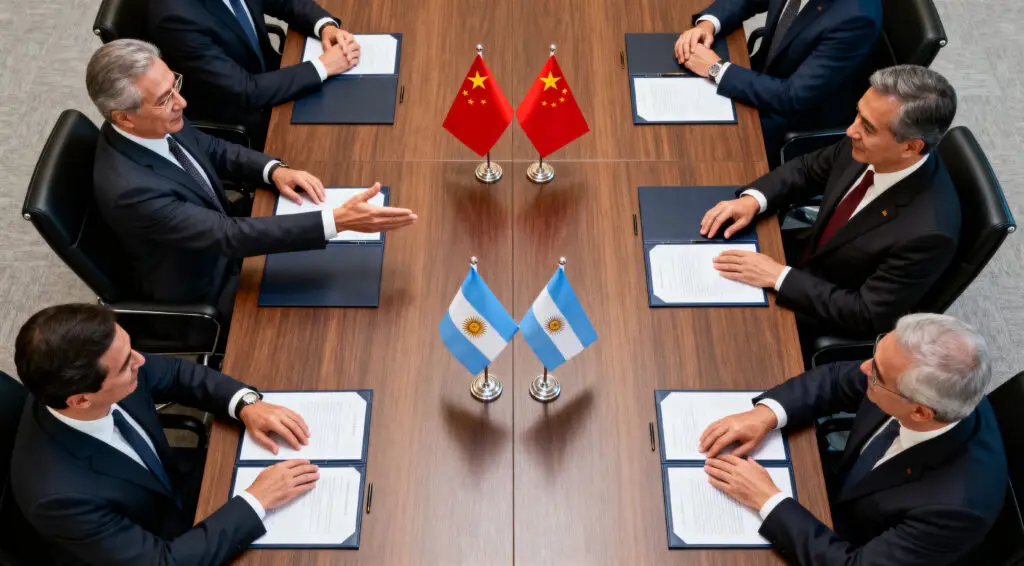Starbucks Navigates a Pivotal Moment in Its China Operations
Starbucks, the global coffee giant, finds itself at a pivotal juncture concerning its operations in China, its second-largest market. Reports indicate that the company is actively fielding proposals from a diverse wave of investors interested in its China business. This intense scrutiny over the future of Starbucks’ premium playbook in the region comes amidst a challenging competitive landscape and evolving consumer preferences. While the Seattle-based chain has firmly denied rumours of a complete exit, it has confirmed that it is indeed evaluating strategic options, signalling a potential restructuring that could reshape its presence and strategy in one of the world’s most dynamic coffee markets.
Evaluating Strategic Options and Potential Restructuring
Starbucks has openly confirmed that it is evaluating strategic options for its China business, a move reportedly valued at up to US$10 billion. A company spokesperson emphasised their commitment, stating, “We see significant long-term potential in China and are evaluating the best ways to capture the future growth opportunities.” The company is actively seeking a strategic partner who shares its vision for providing a premium coffeehouse experience and possesses “like-minded values.” Crucially, Starbucks intends to retain a meaningful stake in the business, asserting that any deal must align with its overall business objectives and benefit its partners. According to Chinese business outlet The 21st Century Business Herald, Starbucks may retain around 30% of its China unit, with the remainder potentially split among several investors to prevent any single buyer from holding a dominant share.
Centurium Capital’s Intriguing Bid and Market Implications
The involvement of Centurium Capital among the reported suitors has particularly “raised eyebrows” within the industry. Centurium Capital is notably the largest shareholder in Luckin Coffee, Starbucks’ formidable archrival in China. If Centurium Capital were to successfully acquire a controlling stake or even significant influence in Starbucks China, it would mark an extraordinary twist in China’s fiercely competitive coffee wars. This scenario could grant a backer of Starbucks’ fiercest competitor considerable influence over the legacy brand’s local strategy and operations, potentially reshaping the competitive dynamics and forcing both brands to adapt their market approaches in unprecedented ways.
Competitive Pressures and Shifting Consumer Preferences
Starbucks’ struggles to maintain its rapid growth pace in China are not new, especially when compared to fast-growing, budget-friendly local competitors like Luckin Coffee. After experiencing four consecutive quarters of sales decline in China, the Seattle-based coffee major reported flat growth in its latest quarter. This downturn has prompted Starbucks to implement various adjustments, including price cuts, menu localisation to better suit local tastes, and marketing refreshes, such as tie-ins with popular pop culture brands. However, the discounting move, a rare deviation from Starbucks’ long-standing premium playbook, sparked backlash on Chinese social media. Netizens criticised the cuts as too shallow to make a significant impact, noting that the lowest-priced item on the menu, at RMB 23 yuan (US$3.20), remains higher than most rivals, highlighting a disconnect with value-conscious consumers.
Leadership Changes and Market Footprint
The challenging market conditions in China have coincided with significant leadership changes within Starbucks’ Asia-Pacific and China marketing teams. Samuel Fung, Starbucks APAC CMO, stepped down earlier this year in February after a 12-year tenure with the coffee giant. Following this, China CMO Erin Silvoy transitioned from the region in April to take on a new position in Seattle. These executive shifts may reflect the company’s efforts to recalibrate its strategy and leadership in response to the evolving Chinese market. Despite these challenges, Starbucks has a substantial footprint in China, having entered the market in 1999 and expanded to 7,685 stores as of its Q1 FY2025 results. Globally, the chain operates 40,576 outlets, underscoring China’s importance to its overall global strategy.
Luckin Coffee’s Aggressive Expansion and Strategy
Starbucks’ largest local rival, Luckin Coffee, is aggressively outpacing the American brand in terms of expansion. As of Q1, Luckin reported an impressive 24,032 stores across China and 65 globally, including new outlets in Singapore, Malaysia, and most recently the US, where it opened two stores in New York City in July. Luckin Coffee’s high-volume, low-price strategy has proven exceptionally effective in attracting younger, value-conscious Chinese consumers. This aggressive expansion and competitive pricing model pose a significant challenge to Starbucks’ traditional premium positioning, forcing the company to re-evaluate its market approach and adapt to the rapid pace of local competition.
Starbucks China: Strategic Review and Future Implications
The deal process for Starbucks’ China business is still in its early stages, with shortlisted bidders expected to gain access to internal financials as the company weighs its next strategic move. For now, Starbucks maintains its stance that any potential transaction must align with its long-term vision and core values. This strategic evaluation reflects a broader trend among global brands adapting to the unique dynamics of the Chinese market, where local competitors are increasingly sophisticated and consumer preferences can shift rapidly. The outcome of this process will undoubtedly have significant implications not only for Starbucks’ future in China but also for the wider landscape of the country’s booming coffee industry.
Related to: China’s High-Tech Tools Turn the Tide in Decades-Long Battle Against Desertification















